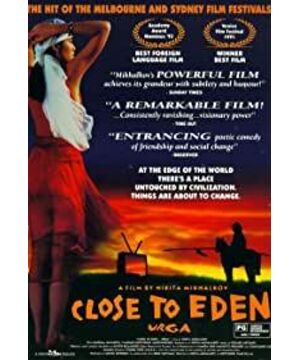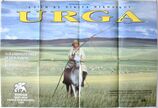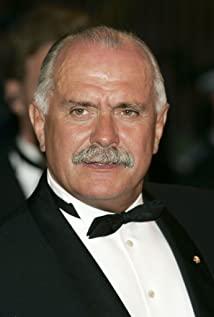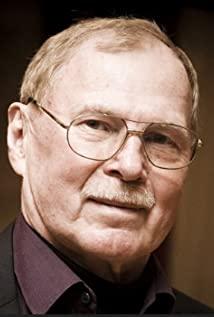0. About Director
Mongolian Spirit Director: Nikita Mikhalkov, known as the Russian Stephen Spielberg, was born in a Moscow art family in 1945, his father Sedim Mikhalkov is a poet and writer , the Soviet national anthem is from his handwriting, his mother is also a poet, and his brother is also a famous Russian director Andrei Konchalovsky.
1. Background supplement: the historical background related to Mongolia, the Soviet Union and China in the film
1917 Russian October Revolution
1991 Soviet Union disintegration
2. Impressive clips,
a pear and an egg, the happy appearance of the hero and heroine
3. Two questions
(1) The drunken horseman appeared in the front, middle and back of the film with a red umbrella. What was the director's intention in setting this character? Contrast the setting of the crazy woman in the drama "Secret Love in Peach Blossom Land"
(2) Why insist on having a fourth child?
Inner Mongolia Autonomous Region stipulates: Mongolian citizens, a couple can have two children. Mongolian citizens with non-urban household registration may have a third child upon approval. The fourth one is the feedback on this policy.
4. Mongolian customs ( 1 ) Celestial
burial - harmony between man and nature (2) Mongolian sheep slaughter song. Written in 1905 during the Russo-Japanese War in memory of fallen comrades in arms. In the 1950s and 1960s, the beautiful melody of its waltz was the first choice in dance halls. During the Cultural Revolution, the Chinese version became popular among educated youths who were far away from home and missed their relatives. Due to historical reasons, the original singing of this song cannot be played in China so far;
Peking Opera: At the beginning, the driver listened to Peking Opera, expressing that it was in China, and the grasslands had not yet been discovered. is a prelude. In the end, in that TV, the intertwining of Peking Opera and international events, the male protagonist did not like it. Might as well go bang bang bang, make a villain. And the mode of papapapa uses the most traditional --- set of horse poles. (The influence of the dominance of Chinese culture on Mongolian culture) (2) The symbol of the counter-revolution in
Stallone's pictorial first blood film (3) The reading fragment of a Russian boy + the characters appearing on the TV at the end Eurasian in the late 1980s and early 1990s 6. The main theme of the film (1) Modernization from a comparative perspective : the decline of ancient empires + the loneliness of ancient peoples, the nostalgia of Russia + the confusion of Mongolians. Three generations of modern civilization products Attitude: the child's eyes are fixed, the old man turns a blind eye, and the male protagonist keeps changing channels. (2) The Russian nation has a sense of belonging and identity that is missing after the disintegration. Facing the irreversible industrial wave, the advance and retreat of the nomads downstream. 7. Narrative style (1)) Documentary style (2) Mongolian culture in the eyes of foreigners in Russia, what would Chinese people look like? (3) Russian films always have a strong poetic literary color ( 4 ) Surreal lens, past, present and future are intertwined special works. The first half is in the style of a documentary. It feels like an instant after entering the city. The ending is very memorable. It is not only limited to the comparison of ethnicity, politics and ideology, but also has a broader thinking on the relationship between the spirit of traditional civilization and modern civilization. Many symbols and lenses are inherited from the old tower, especially the TV set! The NewAge soundtrack is very successful in creating the atmosphere of the film
(2) The Mongolian couple in the eyes of Mikhalkov, the Chinese city in the eyes of Mongolian men, and the loss and decline in the eyes of Chinese audiences, perhaps desolate. Killing, giving birth, horses walking in the long and narrow corridor, apples and eggs share lovers. I especially liked Yizheng who forgot his grandfather's name, and the corresponding dream of Genghis Khan, and he shouted in anger.
(3) The advanced forces of civilization will inevitably invade outward, and the backward civilization will gradually disappear over time. An unbearable sense of loss filled his chest.
(4) Poetry, aesthetics, historical data, national characteristics, sense of humor, plot, ideology,
nostalgia for both time and space, in grasslands and trucks (city), temples and condoms (pharmacies), dance halls and war ruins ("Manchuria Mountains") , horses and bicycles (airplanes), Genghis Khan and TV sets (only programs about China and the United States), horse poles and chimneys are stacked. The other side of the Mongolian spirit is the neighbor (divine, or ghost) who is forever drunk and singing and wandering on horseback and giving food.
The main question is - don't forget who your great-grandfather was.
Tradition and modernity, backwardness and advancedness, locality and foreignness, human beings and nature, all related thoughts have been reflected in the film, and Mikhalkov also rationally maintained the restraint that a Westerner should have, without falling into He was criticized for catering to Western tastes because he cut into Mongolia, but in fact, anyone with a discerning eye knows that behind him is the vast Russian land north of the grasslands. Mongolia is just another shadow, and the physical and mental constraints brought by modern civilization have left a mark on them.
9. Expansion film
(1) The burning sun
(2) The barber of Siberia
(3) The first blood
View more about Close to Eden reviews








